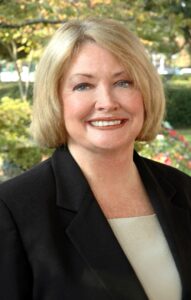Where Are Women in 2023?

By Sherry Shealy Martschink
Way back in my college days, as a teenaged student at Columbia College, I was trying to get signatures on a petition relating to a controversial issue. One professor who signed the petition was of a different political party than my dad, Ryan Shealy, when he had been in office. So, I asked: “Since you and my dad agree on this issue, would you be willing to vote for him if he should run for office again?” The professor answered, “I’d even vote for you.” For me? Did he say “for me?” This was the very end of the 1960s. I was a few months from 20 years old. Even more importantly, I was female. Why would he even say something like that?
A short time later, I transferred to the University of South Carolina for a different major. There I got caught up in several causes, but was frustrated that no one seemed to listen to students. There just had to be a way to work for change in a meaningful way. I applied for a job as a page in the SC Senate. Well, I tried to apply. The Clerk of the Senate said there would never be a female page in South Carolina as long as he was alive!
So, with the clerk’s admonition and that Columbia College professor’s comment in mind, in February 1970, I became a candidate for the SC House of Representatives. I was only 20 years old and the voting age was still 21, so I wasn’t even old enough to vote when I announced. (To vote and to be a candidate for the House, a person had to meet the age requirement as of election day; I turned 21 eight days before the election.)
Things were very different 53 years ago when I declared for office:
- Politics was still a man’s world, and not by just a little bit;
- Generally, elective offices were held by seasoned members of communities, some retired, the majority over 50 and certainly almost all over 30; and
- House members were elected by county; there were no single-member districts.
On Election Day, Lexington County voters would elect three House members. As votes were counted, I was pleased to hold on to fourth place for a long time, having figured I would likely finish last of the six candidates. Then, in the wee morning hours, I moved to third place, but then back to fourth. Yet, in the final tally, I finished third. I had been elected to the SC House of Representatives. Carolyn Frederick of Greenville County, by far my senior, and I were the only two females in the House.
The next part I share just to reveal how unusual this was, how different things were 50+ years ago. I was invited to appear on NBC’s Today show and was interviewed by Barbara Walters and Joe Garagiola. The interview was about being such an “oddity” because of age and gender. Next, there were guest appearances on To Tell the Truth and What’s My Line?
During my second term in office, I married a Charlestonian and moved to Charleston County at the end of the term. Fast forward to 1986. Arthur Ravenel, an incumbent state senator, was running for Congress and won. A special election was set for April 1987 to fill his Senate seat. Living in a new area and with a new last name, I became a candidate for that seat. (Prior to that, I served five years on a local school board.)
It took a primary, a run-off, and a special election, but I eventually won Sen. Ravenel’s former seat and joined Nell Smith of Pickens County in the state Senate, where, once again, I was one of only two females. By 1987, thank goodness, the number of women in the S.C. House had grown, not tremendously, but some baby steps forward had been made.
Here we are in 2023 and the real question is: “Where are women in 2023?” I apologize for the 50 years of background; it’s just really important to realize that “way back” many–or most–people didn’t think a woman winning a political race was even doable. Until the 2022 election, the number of women in our state legislature had been increasing for the last decade. We know that when women run, they win at the same rate as men. It’s doable. So why aren’t more women running?
Are we afraid of having to raise money? Sure, that’s a pain, but raising funds is doable.
Are we afraid of the time and energy commitment? Sure, being a candidate or elected official requires time and energy. So does anything worthwhile.
Are we afraid of losing? Sure, losing is a possibility, but we can’t win if we don’t try. Absolutely, the goal is to win and to make a difference. But even if we lose, female candidates bring women’s perspectives on important issues to the forefront. Being able to place attention on issues IS making a difference.
Women must ask themselves: Do I care enough to make a difference? Oh, yes, there’s something else that has changed from way back in 1970–many people think women office-holders are better at the job than their male counterparts!